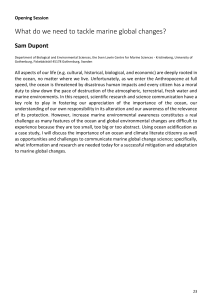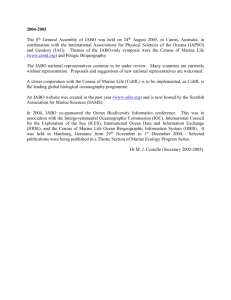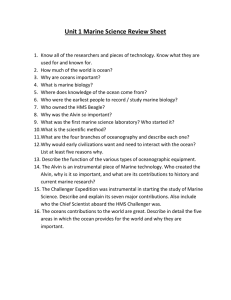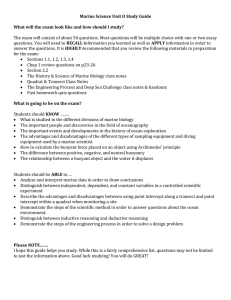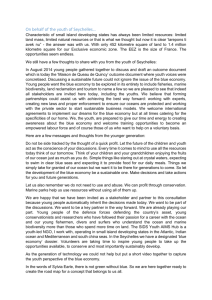Educating the next generation of marine scientists
advertisement
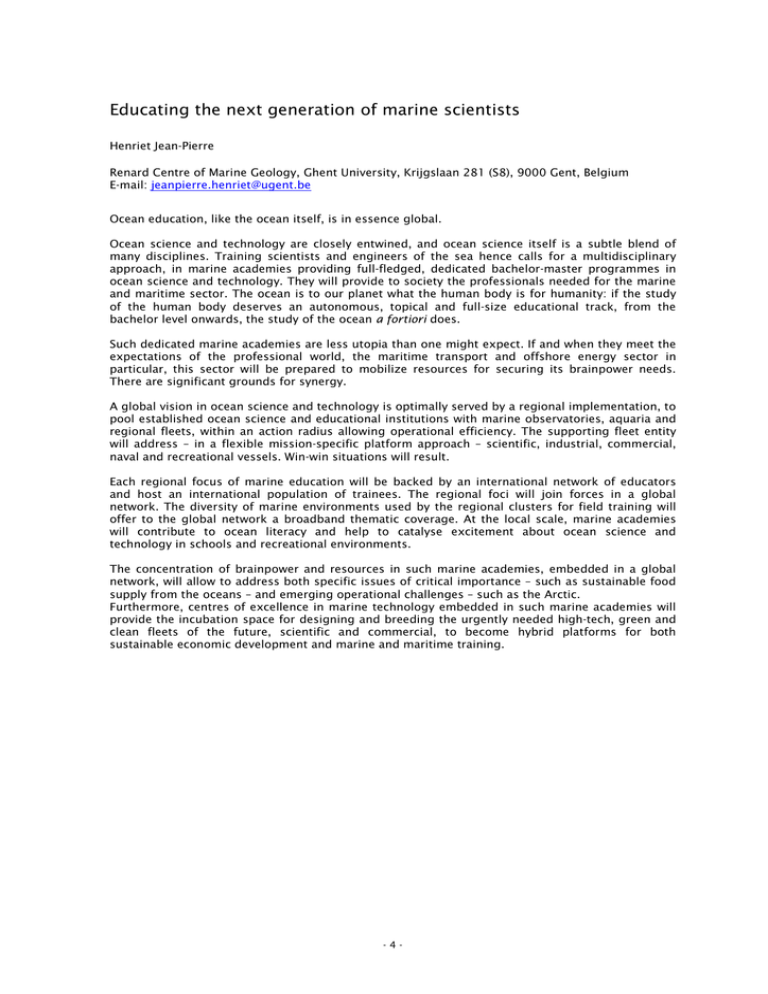
Educating the next generation of marine scientists Henriet Jean-Pierre Renard Centre of Marine Geology, Ghent University, Krijgslaan 281 (S8), 9000 Gent, Belgium E-mail: jeanpierre.henriet@ugent.be Ocean education, like the ocean itself, is in essence global. Ocean science and technology are closely entwined, and ocean science itself is a subtle blend of many disciplines. Training scientists and engineers of the sea hence calls for a multidisciplinary approach, in marine academies providing full-fledged, dedicated bachelor-master programmes in ocean science and technology. They will provide to society the professionals needed for the marine and maritime sector. The ocean is to our planet what the human body is for humanity: if the study of the human body deserves an autonomous, topical and full-size educational track, from the bachelor level onwards, the study of the ocean a fortiori does. Such dedicated marine academies are less utopia than one might expect. If and when they meet the expectations of the professional world, the maritime transport and offshore energy sector in particular, this sector will be prepared to mobilize resources for securing its brainpower needs. There are significant grounds for synergy. A global vision in ocean science and technology is optimally served by a regional implementation, to pool established ocean science and educational institutions with marine observatories, aquaria and regional fleets, within an action radius allowing operational efficiency. The supporting fleet entity will address – in a flexible mission-specific platform approach – scientific, industrial, commercial, naval and recreational vessels. Win-win situations will result. Each regional focus of marine education will be backed by an international network of educators and host an international population of trainees. The regional foci will join forces in a global network. The diversity of marine environments used by the regional clusters for field training will offer to the global network a broadband thematic coverage. At the local scale, marine academies will contribute to ocean literacy and help to catalyse excitement about ocean science and technology in schools and recreational environments. The concentration of brainpower and resources in such marine academies, embedded in a global network, will allow to address both specific issues of critical importance – such as sustainable food supply from the oceans – and emerging operational challenges – such as the Arctic. Furthermore, centres of excellence in marine technology embedded in such marine academies will provide the incubation space for designing and breeding the urgently needed high-tech, green and clean fleets of the future, scientific and commercial, to become hybrid platforms for both sustainable economic development and marine and maritime training. -4-

